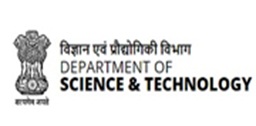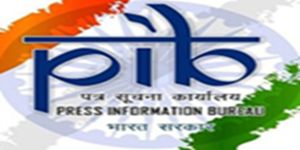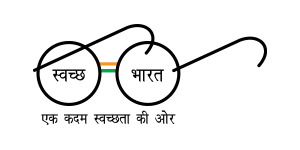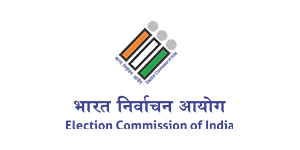North East Centre for Technology Application and Reach (NECTAR)
GENERAL BY LAWS
Under Rule 12 (xiii) of the Rules of the NORTH EAST CENTRE FOR TECHNOLOGY APPLICATION AND REACH (NECTAR), the Governing Council hereby makes and adopts, with prior approval of the Central Government, the following General BY LAWS:
PART – I: SHORT TITLE AND COMMENCEMENT
1. Description
- These BY LAWS shall be called the NORTH EAST CENTRE FOR TECHNOLOGY APPLICATION AND REACH (NECTAR) General BY LAWS, 2017, hereinafter referred to as the General BY LAWS.
- These General BY LAWS have been approved by the Government of India vide letter No.AI/18/1/NECTAR/2017 dated 3rd May, 2018.
- These General BY LAWS shall come into force from the date of adoption by the Governing Council.
2. Definitions
Various terms used in these General BY LAWS will have the same meaning as defined in Bye-Law 3 of Service BY LAWS.
PART – II: DESIGNATION OF OFFICERS
3.The Designated Officer under Rule 16 of the Rules shall be the Director General of the Centre who is also the Member-Secretary of the Governing Council or an officer authorized by him.
4.The designated officer under Rule 31 of the Rules shall be the Director General or an officer of the Centre so appointed by the Director General by a specific order.
5.The designated officer under Rule 32 of the Rules shall be the Director General or an officer of the Centre authorised by the Director General.
PART – III: GOVERNING BODY AND GOVERNING COUNCIL
6.The Governing Council comprising a total of ten members is also the Governing Body of the Society. Whenever a person holds the membership of the Governing Body or the Governing Council by virtue of an office held by him (ex-officio) his membership shall terminate when he ceases to hold that office and the vacancy so caused shall be automatically filled by his successor to that office.
7.A person holding the membership of the Governing Body or the Governing Council by virtue of an office held by him (ex-officio) shall normally attend the meetings himself in person but in exceptional circumstances shall have the right to nominate a representative, not below the level of Joint Secretary to the Government of India, to act on his behalf. The representative shall also have the voting right of the member.
8.An Annual General Meeting of the Society shall be held at such time, date and place as may be determined by the Chairman. At such Annual General Meeting the Governing Body shall submit the Annual Report and Audited Accounts of the Society, together with the Auditor’s Report thereon. The Chairman may, either suo motu or upon the request of a member, convene a Special General Meeting of the Society, whenever he thinks fit or as per the Rules.
9.Each member, or his representative, of the Governing Body and the Governing Council shall have one vote and, if there be an equality of votes on any question to be decided, the Chairman shall have a casting vote.
10.In case of a difference of opinion amongst the members of the Governing Council on a question of sufficient importance, the opinion of the majority shall prevail. The Chairman may, however, refer any question, which in his opinion is of sufficient importance for the decision of the Central Government. The decision of the Central Government shall be binding on the Society and its Governing Body and Governing Council.
11.The accidental omission to give required notice, or the non-receipt of notice by any member, shall not invalidate the proceedings at the meeting.
PART – IV: EXECUTIVE COUNCIL
12.The representative of the North Eastern States shall be nominated by one of the States by rotation in alphabetical order. The term of such a representative will be one year.
13.Whenever a person holds the membership of the Executive Council by virtue of an office held by him (ex-officio) his membership shall terminate when he ceases to hold that office and the vacancy so caused shall be automatically filled by his successor to that office. The term of a member, other than an ex-officio member, shall be for a period of two years.
14.A person holding the membership of the Executive Council by virtue of an office held by him (ex-officio) shall normally attend the meetings himself in person but in exceptional circumstances shall have the right to nominate a representative to act on his behalf at a particular meeting and the representative so nominated shall be entitled to take part in the proceedings of that meeting. The representative shall also have the voting right of the member.
15.The decisions of the Executive Council shall as far as possible be taken by consensus. However, in case of a difference of opinion amongst the members of the Executive Council, the opinion of the majority shall prevail. The Chairman may, however, refer any question, which in his opinion is of sufficient importance for the decision of the Governing Council. Each member of the Executive Council shall have one vote and, if there be an equality of votes on any question to be decided, the Chairman shall have a casting vote.
16.Every meeting of the Executive Council shall be presided over by the Chairman and in his absence, by a member nominated by him for the purpose.
17.The accidental omission to give required notice or the non-receipt of notice by any member shall not invalidate the proceedings at the meeting. The meeting may be held at shorter notice as decided by the Chairman of the Executive Council.
18.Pending its meeting, the Executive Council may take decision on any issue within its delegated powers by circulation by electronic or postal means, with the permission of the Chairman, Executive Council.
PART – V: POWERS AND DUTIES OF DIRECTOR GENERAL
19.The Director General, who is appointed by the Governing Council with the prior approval of the Government of India, and who is as the Chief Executive Officer of the Centre, shall be responsible for proper administration of the affairs of NECTAR and shall exercise powers under the direction and guidance of the Governing Council.
20.The Director General shall coordinate and exercise general supervision over all the activities of the Centre. He shall also be competent to delegate any of the powers conferred upon him to such officers of the Centre working under him as may be considered necessary for effective and efficient functioning of the Centre;
21.Subject to the provisions of Bye-Law 20 above, the Director General shall have full powers on behalf of NECTAR to institute, conduct, intervene, defend, abandon or compound any suit, appeal, review, revision, writ petition or other proceedings by or against the Centre or its employees or otherwise concerning the affairs of the Centre in any court and / or quasi judicial authorities, to refer any claims or demand by or against the Centre to arbitration and observe and perform the awards, to sign and verify plaints, written statements; execution and other petitions, applications, affidavits, objections, memorandum of appeal or other pleadings to be filed before any judicial or quasi judicial authorities or arbitrators to enforce judgment, execute any decree or order of any judicial / quasi judicial authorities or to satisfy the same and / or to realize or withdraw money from any court, persons or other authorities in execution of such decree or order and to sign vakalatnamas;
22.Subject to the provisions of Bye-Law 20 above, the Director General shall have all financial powers as delegated by the Governing Council or as provided under the financial BY LAWS;
23.Subject to the provisions of Bye-Law 20 above, the Director General shall be competent on behalf of the Centre to execute contracts, collaboration agreement(s) general / special instruments, service agreements / agreements containing arbitration clauses, indemnity bonds and deeds in respect of or connected with sale / lease / license, mortgage, hypothecation, pledge, or other deed(s) of a legal character of whatever description, power(s) of Attorney, to enforce guarantee(s) or any other legal rights, to incur legal expenses and to act as agent of the Centre for any purpose whatsoever relating to the affairs of the Centre.
24.The Director General shall also be responsible for the following functions and duties:
- To identify sector/ sub-sector wise problems and lay down road maps for technology intervention to arrive at a workable solution.
- To monitor and review periodically the activities of NECTAR, and to take remedial measures, as deemed fit, to meet the aims and objectives of NECTAR.
- To consider the detailed Annual Budget Estimates and also Revised Estimates and forward the same with his recommendations to the Finance Committee, Executive Council and Governing Council.
- To consider and submit for approval to the Governing Council the proposals for alteration, addition and modification to the BY LAWS made under the Rules of NECTAR.
- To propose from time to time alteration, addition and modifications to the Rules and Regulations of NECTAR to meet the aims and objects of NECTAR for approval of the Governing Council.
- Exercise full powers to approve and sanction expenditure under every head and item provided in the Annual and Supplementary Budget Estimates approved by the Governing Council and opening of savings account in a bank as per the Financial BY LAWS.
- Appoint from time to time, committees, working groups, etc. comprising NECTAR employees and external experts for specific purposes.
- Authorize import of equipment, components and other materials as provided in the sanctioned budget proposals.
- Undertake such other measures as may be necessary for the administration of the affairs and fund of NECTAR, or as may be directed by the Governing Council.
PART – VI: ALLOWANCES AND FEES
25.The official members or ex-officio members of the Governing Council, the Executive Council and any Committees, Working Groups etc. set up by the Centre will normally claim TA/DA from their parent Departments or Ministries. The Centre, if required, may reimburse their TA/DA as per their entitlements , subject to extant Government instructions in this regard.
26.TA/DA to non-official members of the Governing Council, the Executive Council and any Committees, Working Groups etc. shall be paid as per their entitlements subject to extant Government instructions in this regard.
27.Sitting fees or honorarium to the non-official members shall be paid at a rate not more than the rate as approved by the Central Government as amended from time to time.
Page Last Updated : 11-08-2025 - 22:52

















